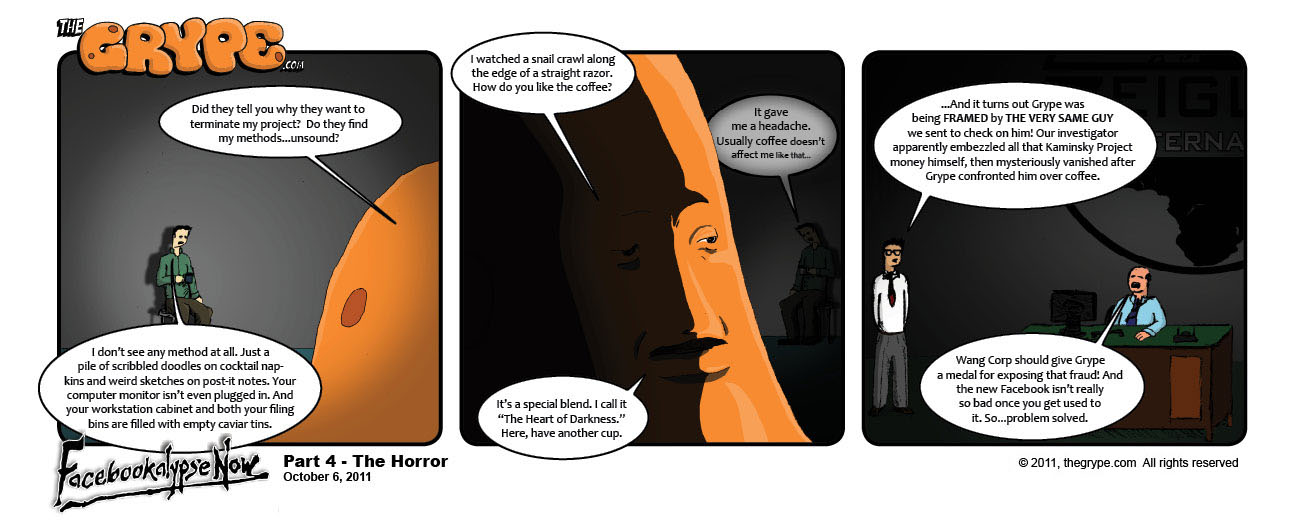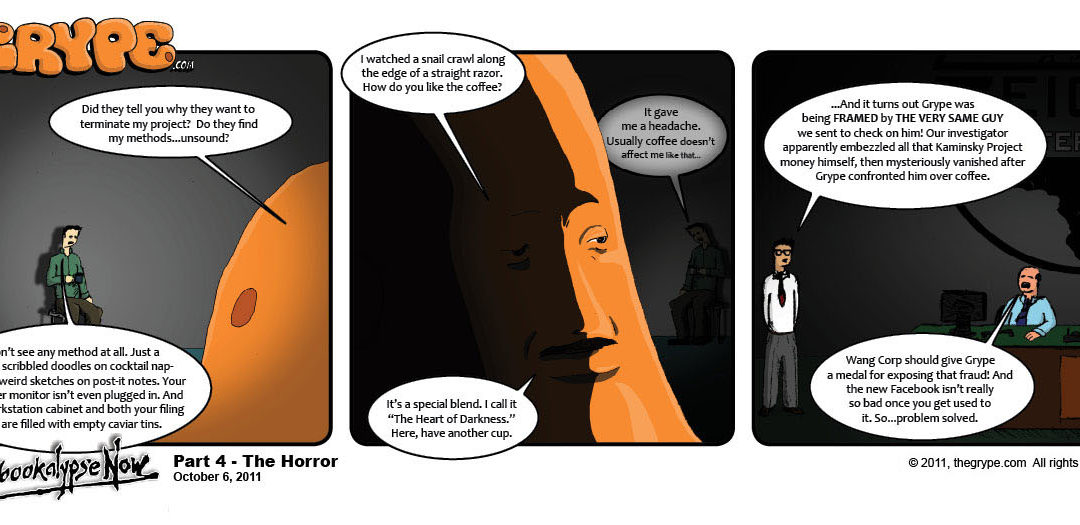 Although the aftershocks have faded from the recent Facebook upgrade, this may be the calm before the storm. Facebook is about to implement still more changes in the next few weeks, altering the look and feel of the user profile section. They are going to move some little buttons around, move some pictures and add some supposedly “intuitive” new features to streamline the whole mess.
Although the aftershocks have faded from the recent Facebook upgrade, this may be the calm before the storm. Facebook is about to implement still more changes in the next few weeks, altering the look and feel of the user profile section. They are going to move some little buttons around, move some pictures and add some supposedly “intuitive” new features to streamline the whole mess.
The result? A whole new slew of vehement complaints as pithy little mini-tirades and angry graphics are ruthlessly exchanged among disgruntled users. All of which will be posted— ironically— where? On Facebook. (And for the record, Alanis, THAT is an actual textbook example of “irony.” NOT an unanticipated bit of bad weather or the late discovery of a complementary means of travel after the fact).
People collectively grumble when involuntarily forced to adapt to unanticipated change. That’s a given. But Facebook (and other digital service vendors like Twitter and the rest) can’t relax— not for even an instant. They don’t dare. If they do, their product will become laughably stale before you can say “AOL.” They must continually refresh the look and feel of their product, lest they slide into banality and obsolescence, and ultimately into extinction.
To remain afloat in the treacherous sea of commercial success any company or entrepreneur must surf each new wave of market demand without falling victim to the savage backwash of scathingly fickle public opinion. The glaring spotlight of sudden extreme cultural success is fleeting unless one continually adapts the public image of the product to market changes. Yet it is equally dangerous to ride a trend (like a wave) too long and too close to the shore. When the last bit of momentum from that dying wave is spent, one might find oneself floundering on the rocky shoals among yesterday’s abandoned fads.
One important economic principle to remember is “The Law of Diminishing Returns” which states “in all productive processes, to add more of one factor of production, while holding all others constant, will at some point yield lower per-unit returns.”
I know what you’re saying: “Sorry, Herr Grypster, I can’t speak your crazy moon-language.”
Allow me to translate: if you keep doing the same thing over and over and add a little bit more “something” every time to improve your product, eventually that “something” stops making things better. So if Facebook keeps adding more whistles and bells to make things better, eventually the upgrades stop being perceived as a benefit by users and become a detriment to user satisfaction. Also, one must be careful not to allow apps and add-ons to turn one’s social media hub into an endless parade of bandwidth-intensive stupid internet tricks and predatory join requests. Ridiculous custom background wallpaper pics, sluggish music plug-ins and animated glitter graphics killed MySpace by slowing it down to a pathetic crawl, turning it into a playground for bored tweens. When the grown ups abandoned it to porn peddlers and malware spam, the party was over.
That’s the tightrope Mark Zuckerberg and the Facebook team must walk— with angry users complaining about any new change or alteration on one side, and bored users logging out because the service is no longer trendy enough on the other. Friendster bowed out of the race in June, but there’s buzz about a new social network on the horizon trying to horn in on Facebook’s action, recent contender Google+. Granted, Google keeps following in the footsteps of that other corporate mega-doofus Microsoft by regularly rolling out hyper-cool social media products that test great but which no one seems to want to use (remember Windows LiveSpaces and GoogleWave? Yeah, me neither). But maybe this time Google will get it right and actually grab some market share.
If so, Mark Zuckerberg’s friends list might dwindle by a hundred million or so. Then he and Tom Anderson could hang out together (remember Tom, everybody’s friend from MySpace?). Tom could probably use a few friends too, since even he officially left MySpace in 2009.
Surf or drown. Facebook might benefit by applying concepts developed by Charles Simonyi‘s “intentional software” work to identify end user motivation before changing the Facebook user graphical interface: i.e, “only give the people the tools they need to do what they want.”
But then… Charlie don’t surf.

